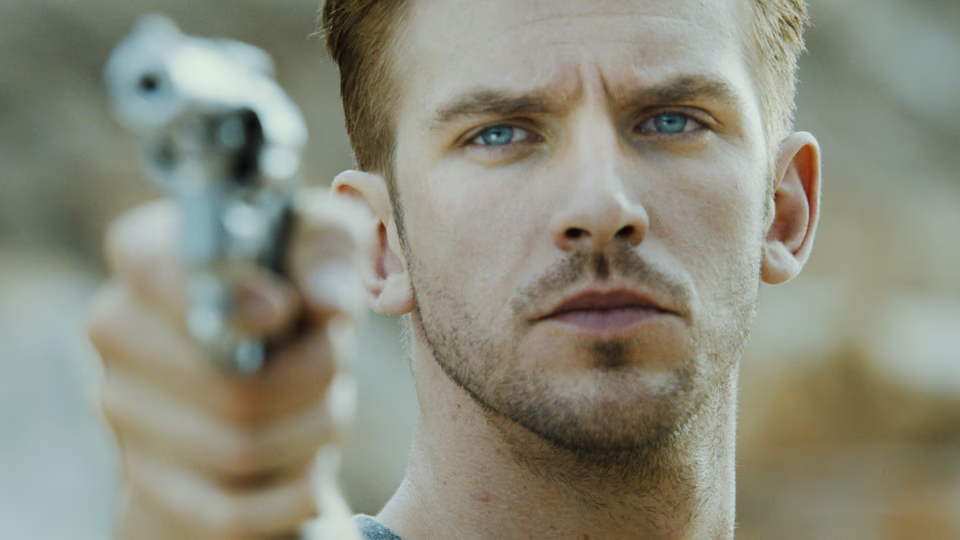The Guest

In a rural southern town, a family struggles with the grief of losing their oldest son, Caleb, in the war in Afghanistan. A man named David shows up on their doorstep. A fellow soldier just discharged, David’s fulfilling a deathbed promise to check in on Caleb’s family. Charming, polite, and quick to help, David wins the family over and they invite him to stay as long as he wants. But David harbors secrets the family discovers too late. Spoilers follow.
Dan Stevens charms as David. His piercing blue eyes, amiable smile, and laconic demeanor set me at ease, just like the family on-screen. His manner appears genuine, but when he’s alone, the twinkle in his eyes blinks out and his expression goes blank in a pose of icy robotic emptiness.
Simon Barrett’s script posits an interesting premise. It’s hinted at but never laid plain in an exposition dump. Here’s my take: David participated in covert super-soldier experiments. These experiments made him strong enough to lift kegs one-handed, fast enough to intercept a punch, and muted his pain receptors so a shard of glass through his leg proves more inconvenience than obstacle. But removing this ability to feel pain has transformed him into a high-functioning sociopath. Ever a military man, he made it his mission to help Caleb’s family, but his help brings fatal consequences.
This alone would be enough, but Barret adds a final hook. As part of the experiment, David’s been programmed to cover his tracks should his true nature be discovered. Thus, when the family pries, and the company behind the experiments picks up on this prying, David goes into murderous cleanup mode. Stevens’s performance here shines. David doesn’t want to kill these people, but he’s not horrified by it either. It’s unfortunate, nothing more.
Thus, The Guest begins as a black comedy about the dangers of wish fulfillment, including a terrific scene in a roadhouse bar where David aids Caleb’s younger brother in standing up to some bullies, and later pivots to a John Carpenter-style slasher.
The synth-heavy score accentuates the Carpenter vibe, but this film shares more DNA with Drive and No One Lives than Halloween. But unlike those films, where circumstances force the anti-hero leads into action, David gets involved of his own accord. Drive’s lead dons a mask at the film’s end, while David wears his from the start and only removes it at the end. He’s not a reluctant hero, but a reluctant sociopath. And that’s genius.